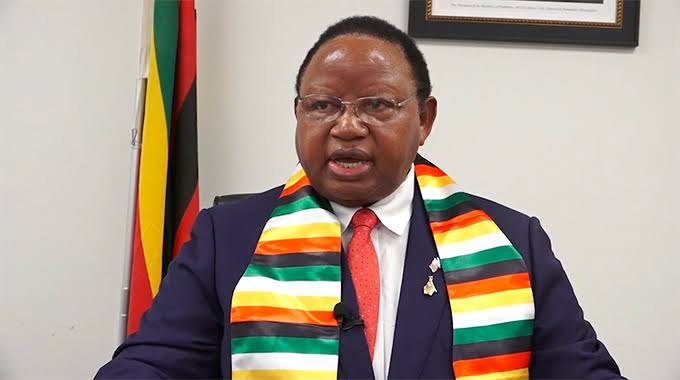HARARE – Zimbabwe has launched its second satellite, ZIMSAT –2, marking another significant stride in the country’s space programme.
In November 2022, the country deployed its inaugural satellite, ZimSat-1.
A low earth observation satellite- ZIMSAT-2, was launched from the Vostochny Cosmodrome in eastern Russia in a collaborative effort between the Zimbabwe National Geo-Spatial and Space Agency (ZINGSA) and Southwest State University in Russia.
ZINGSA said ZIMSAT-2 is equipped with a high-resolution multispectral camera designed to support various applications, including agriculture, resource exploration, and environmental monitoring.
On Tuesday, the Ministry of Higher and Tertiary Education, Innovation, Science and Technology Development said ZIMSAT – 2 was successfully launched aboard the Soyuz-2.1 spacecraft at 1 AM from the BVostochny Cosmodrome in Russia.
“The Ministry of Higher and Tertiary Education, Innovation, Science and Technology Development is pleased to report that ZIMSAT-2 is now in orbit, and initial telemetry (health of the satellite) data confirm that all subsystems are functioning optimally.
“This remarkable achievement represents a significant milestone in Zimbabwe’s journey into space technology, underscoring our commitment to advancing scientific research and innovation for national development,” it said.
“This remarkable achievement represents a significant milestone in Zimbabwe’s journey into space technology, underscoring our commitment to advancing scientific research and innovation for national development.
“This satellite will enhance our agricultural capabilities, environmental monitoring, disaster management, and resource mapping, ultimately improving our national wellbeing.”
The ministry said development of satellite has also contributed to capacity building, as Zimbabwean engineers actively participated in designing and building ZIMSAT-2.
For ZIMSAT-1, Zimbabwe had two master’s graduates and one PhD graduate who completed their studies while ZIMSAT-2 involved contributions from PhD students currently studying in Russia.
Speaking at the launch, Dr. Painos Gweme, the Coordinator of the Zimbabwe National Geospatial and Space Agency (ZINGSA), said by “providing valuable data and insights, ZIMSAT-2 will contribute to Zimbabwe’s economic development, particularly in the agriculture and mining sectors.”
It will also monitor the earth and support missions that keep track of crop health, predict yields and identify nutrient deficiencies using modern technologies.
















